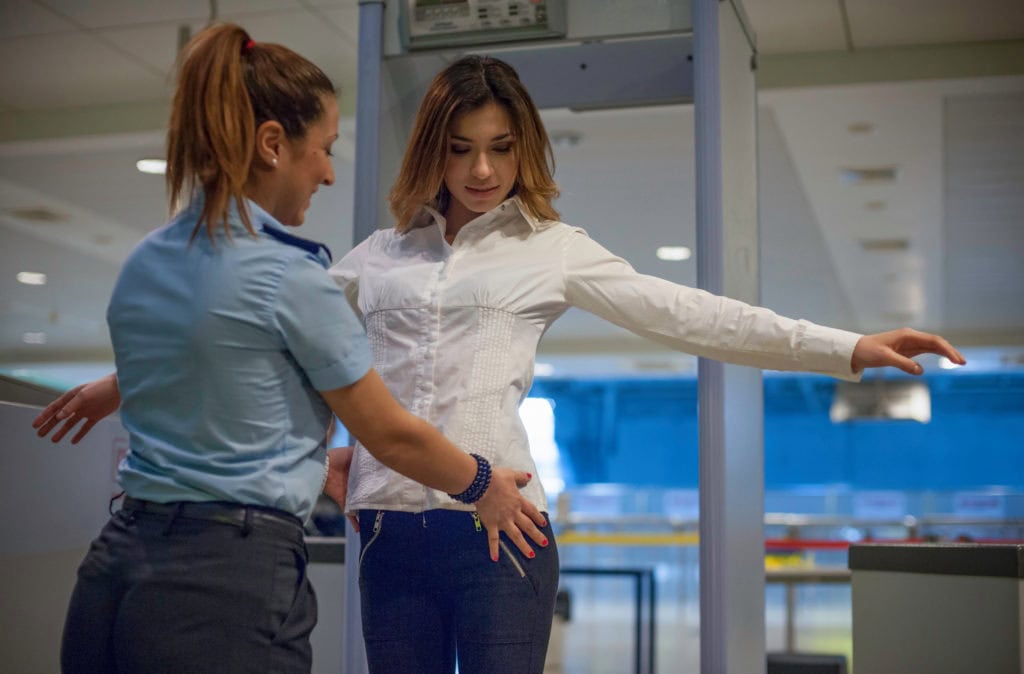Free Case Evaluation | Call Us 24/7 AT (416) 658-1818

There is no place on Canadian soil where individuals have less constitutional protection than at an international airport. The government and the courts have determined that overriding concerns for effective law enforcement, security, and national sovereignty are more important than the protection of Charter rights in the airport context.
Section 1 of the Charter allows the government to limit Charter rights as much as is reasonably justified in a free and democratic society. For all intents and purposes, the court has ruled that it is reasonably justifiable to limit Charter rights against search and seizure to facilitate customs and security at an international airport.
This limitation of freedom applies only in the context of international flights. When you are flying domestically, Charter rights apply to you the same way as they do anywhere else in the country. However, when you are flying between countries, the protection afforded by the Charter is severely limited.
There are three levels of airport security.
Primary inspection occurs at customs. A customs officer will ask an individual questions about his or her travel plans. The individual has no constitutional rights in this context. He or she cannot legally refuse to answer the question. If he or she does so, the airport has a right to detain the individual.
Secondary inspection consists of a search of any luggage the individual is carrying. The officer need not demonstrate any reasonable ground for suspicion to search an individual’s belongings. It is perfectly legal for airport officers to conduct random and arbitrary bag searches. In fact, random searches are seen as a prudent technique airport officers may use to discover evidence, prevent smuggling, and deter smuggling.
A skin search or body search is also considered to be a form of secondary search. The only criterion preceding such a search is that it be approved by a senior airport officer. Individuals facing such a search are protected by one constitutional right: the s.10 right to counsel. This protection is available so that a criminal defence lawyer can advise you that the strip search cannot legally be conducted without the permission of a senior airport officer. Beyond that, there is very little a criminal defence lawyer can do to help you protect your privacy when you face a search of this kind.
Moreover, individuals in this situation are not awarded protection by the other Charter rights such as the s. 8 right to be free from unreasonable search and seizure. Body searches, like bag searches, may be conducted at random by airport officers. In any other context, an officer would have to meet the criteria set out in R. v. Golden before exercising his or her discretion to conduct a body search. However, in the airport context, no such justification is necessary.
Finally, tertiary search consists of a body cavity search. Among other things, the officer conducting the search must show that he or she has a “high level of justification” for conducting the search.
Though the Supreme Court of Canada is not clear about the meaning of the term “high level of justification”, most criminal defence lawyers, Crown Attorneys and judges in the lower court agreed that this translates to reasonable and probable grounds approaching certainty that the search will reveal evidence.
In lieu of conducting a body cavity search, airport officers may detain the individual until natural circumstances force them to expel the bags from their body. Based on the ruling in R. v. Monney, the airport can hold an individual for at least seven hours in a detention cell, known as a “drug loo room”, to wait for him or her to expel the evidence. However, the maximum amount of time airport officials may hold an individual is unclear in the current case law.
Only approximately 15% of individuals who are strip or cavity-searched in the airport are found to be carrying contraband. This means that 85% of people are unnecessarily degraded under the current system.
Criminal defence lawyers are using every option available to them to try to change the law so that it better protects your privacy. However, given the rationale behind the lack of constitutional protection at the airport, it is unlikely that the rules regarding searches at the airport will be relaxed in the near future.